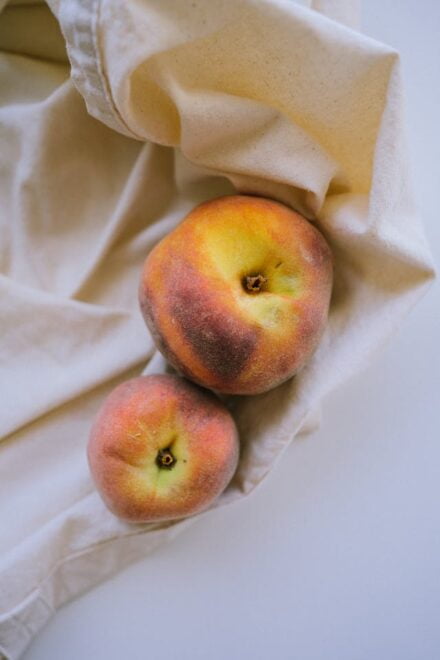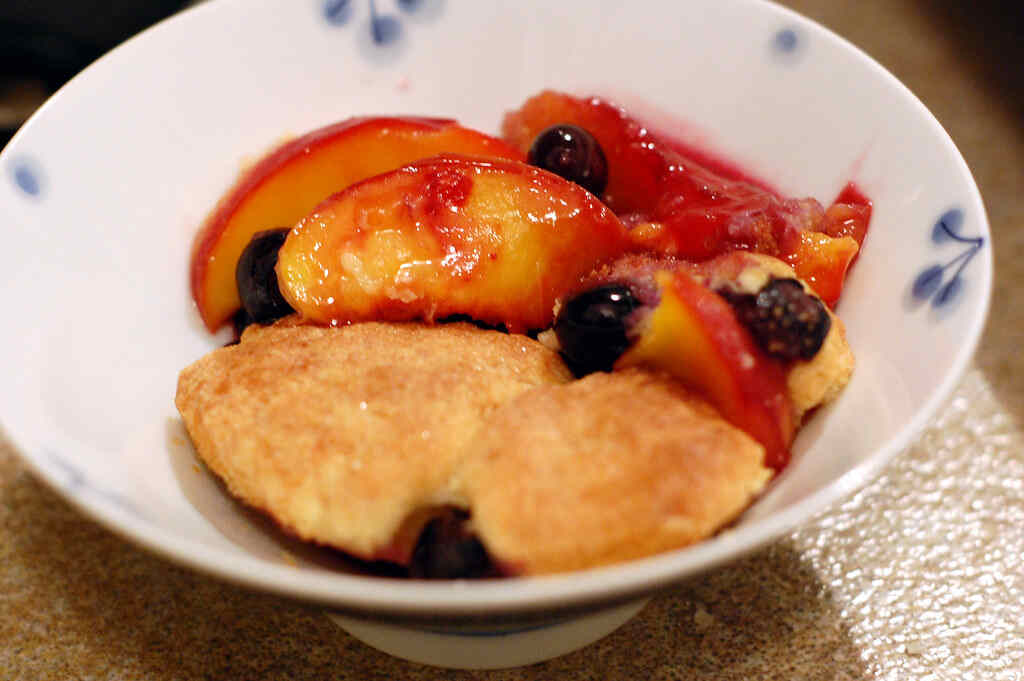
In the world of pet nutrition, the question of whether peaches are good for dogs plays a big role. This exploration goes beyond the surface and gets to the bottom of the obscure truth about peaches as a potential nutritional supplement for our four-legged friends. This comprehensive guide focuses on nutritional benefits, potential risks, and even delicious peach recipes, and aims to provide a comprehensive source of information for pet owners who want clarity on this issue.
Table of Contents
Are peaches good for dogs?

Nutritional Benefits of Peaches.
Let’s start by uncovering the layers of nutrients that make peaches a potentially healthy treat for your canine friend. Are peaches good for dogs? We will examine the various nutrients contained in this delicious fruit.
Rich in vitamins:
Peaches are rich in vitamin A and vitamin C, which strengthen your dog’s immune system and contribute to skin health. Understanding vitamin content is important for evaluating whether peaches can be a valuable addition to your pet’s diet.
Fiber for balanced digestion:
The fiber found in peaches helps promote digestive health in dogs. As a responsible pet owner, it’s important to be aware of the positive effects fiber has on your dog’s digestive system and answer key questions from a nutritional perspective.
Antioxidants:
Antioxidants in peaches, such as beta-carotene and flavonoids, play an important role in neutralizing free radicals and supporting cellular health. These antioxidants contribute to your dog’s overall health, making peaches a healthy addition to your dog’s diet.
How to Consume Peaches Safely:

The nutritional benefits of peaches are obvious, but ensuring the safety of your furry friend is paramount. Search for keywords to learn more about precautions and safe practices when incorporating peaches into your dog’s diet.
Pit Problems:
Cyanide-containing core of peach. Understanding the dangers associated with holes emphasizes the importance of removing them to ensure your dog’s safety.
Moderation is key:
The question of whether peaches are good for dogs highlights the need for moderation. Occasional small bite-sized treats can provide nutritional benefits without taxing your dog’s digestive system.
Preference for fresh raw organic peaches:
When choosing fresh raw organic peaches, concerns about additives and sugars that canned varieties may be considered. This is in line with the intent of the keyword and emphasizes the importance of choosing the appropriate peach shape for our canine companions.
Additive Awareness:
Reminding pet owners to be aware of added sugars and preservatives in peach-flavored products. Being aware of additives is key to making an informed decision about the suitability of peaches for dogs.
Peaches are generally considered safe, but it is important to be aware of the potential risks and take precautions. Encourages us to take a closer look at the following factors:
Allergy Considerations:
This keyword emphasizes the importance of gradually introducing peaches to monitor your dog for possible allergic reactions. To assess whether peaches are right for your dog’s nutritional needs, it’s important to recognize each dog’s individual response.
Ongoing dangers of peach pits:
Repeating the dangers associated with peach pits, especially the cyanide content, carefully ensure that dogs do not have access to these potentially dangerous elements The need to do so is emphasized.
Balance method:
The recognition of the importance of moderation reflects the opinion that while peaches have nutritional benefits, overconsumption can cause gastrointestinal problems. The balanced inclusion of peaches as an occasional treat is consistent with a keyword focused on your dog’s overall health.
Peach Recipes Made for Dogs:

For those who value culinary creativity, incorporating peaches into dog-friendly recipes creates a fun twist. Here are two of his recipes that both pets and owners will love:
Frozen Peach Delight:
Ingredients: Fresh peaches (seeds and cubes), natural yogurt. Instructions: Mix diced peaches with natural yogurt, pour the mixture into ice cube trays and freeze. These frozen peach treats serve as a refreshing and nutritious treat, demonstrating the versatility of peaches in delicious dishes for dogs.
Peach and Chicken Dog Bites:
Ingredients: Cooked Chicken Breast, Fresh Peaches (seeded and diced) Instructions: Cooked Chicken Breast, Cut into Cubes, mix with the diced peaches. This appealing combination can be served as a special treat during training or as an occasional reward, demonstrating the versatility of peaches when preparing delicious meals for your dog.
Conclusion:
Even after all the research, the key question remains at the forefront: “Are peaches good for dogs?” The nutritional benefits, potential risks associated with peaches, and safe practices, pet owners can make informed decisions tailored to their furry companions.
Essentially, peaches can be a nutritious and enjoyable addition to your dog’s diet when approached with care and safety precautions. Removing the seeds, feeding in moderation, and choosing fresh, organic peaches are essential steps to positively incorporate this fruit into your dog’s nutritional repertoire.
As a responsible pet owner, it’s important to recognize that each dog is unique and may have different nutritional needs. Once pet owners understand both the nutritional benefits and potential risks of feeding peaches to dogs, they can embark on a journey of making informed decisions that will contribute to their beloved companion’s overall health and well-being.
So the next time you enjoy a juicy peach, consider sharing a small, seedless piece with your canine friend. This creates not only a delicious treat, but also a bond created through thoughtful nutritional choices. The Peach Paradox revealed in this detailed guide provides pet owners with the knowledge they need to improve the well-being of their furry family members.
Are peaches good for dogs?
Q1: Are peaches safe for all dogs, or are there certain breeds or health conditions that should avoid them?
A1: While peaches are generally safe for most dogs, individual sensitivities can vary. It’s crucial to introduce peaches gradually and monitor for any adverse reactions. Dogs with pre-existing health conditions or allergies may need special consideration, and consulting with a veterinarian is advisable.
Q2: Can I feed my dog canned peaches, or should I strictly stick to fresh ones?
A2: It’s recommended to opt for fresh, raw, and organic peaches over canned varieties. Canned peaches often contain added sugars or syrups, which can be harmful to dogs. Fresh peaches ensure that your furry friend receives the maximum nutritional benefits without any potentially detrimental additives.
Q3: How should I prepare peaches for my dog, and what precautions should I take with the pit?
A3: Always remove the pit before offering peaches to your dog, as the pit contains cyanide, which can be toxic. To prepare peaches, wash them thoroughly, remove the pit, and then slice them into small, bite-sized pieces. Ensuring the absence of the pit is crucial to preventing potential hazards.
Q4: Can I use peaches as a regular part of my dog’s diet, or should they be given as an occasional treat?
A4: While peaches offer nutritional benefits, moderation is key. Peaches should be considered as an occasional treat rather than a regular part of your dog’s daily diet. Excessive consumption can lead to digestive upset, and maintaining a balanced diet is essential for your dog’s overall well-being.
Q5: What signs should I watch for to determine if my dog is allergic to peaches?
A5: Common signs of allergies in dogs include itching, redness, swelling, or gastrointestinal upset. When introducing peaches into your dog’s diet, observe for any unusual behavior or symptoms. If you notice any adverse reactions, it’s advisable to discontinue feeding peaches and consult with your veterinarian for guidance.

One Reply to “Are peaches good for dogs?”